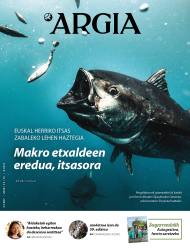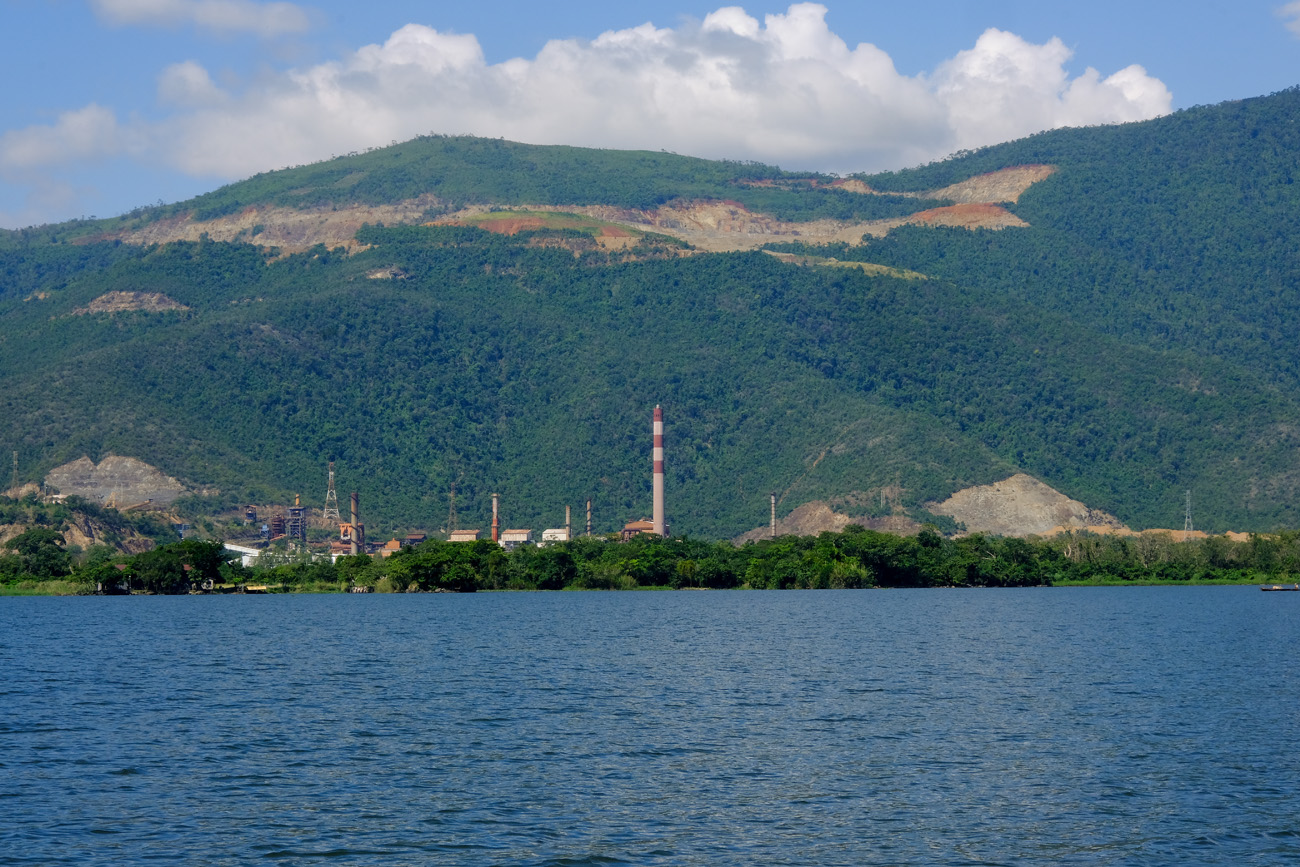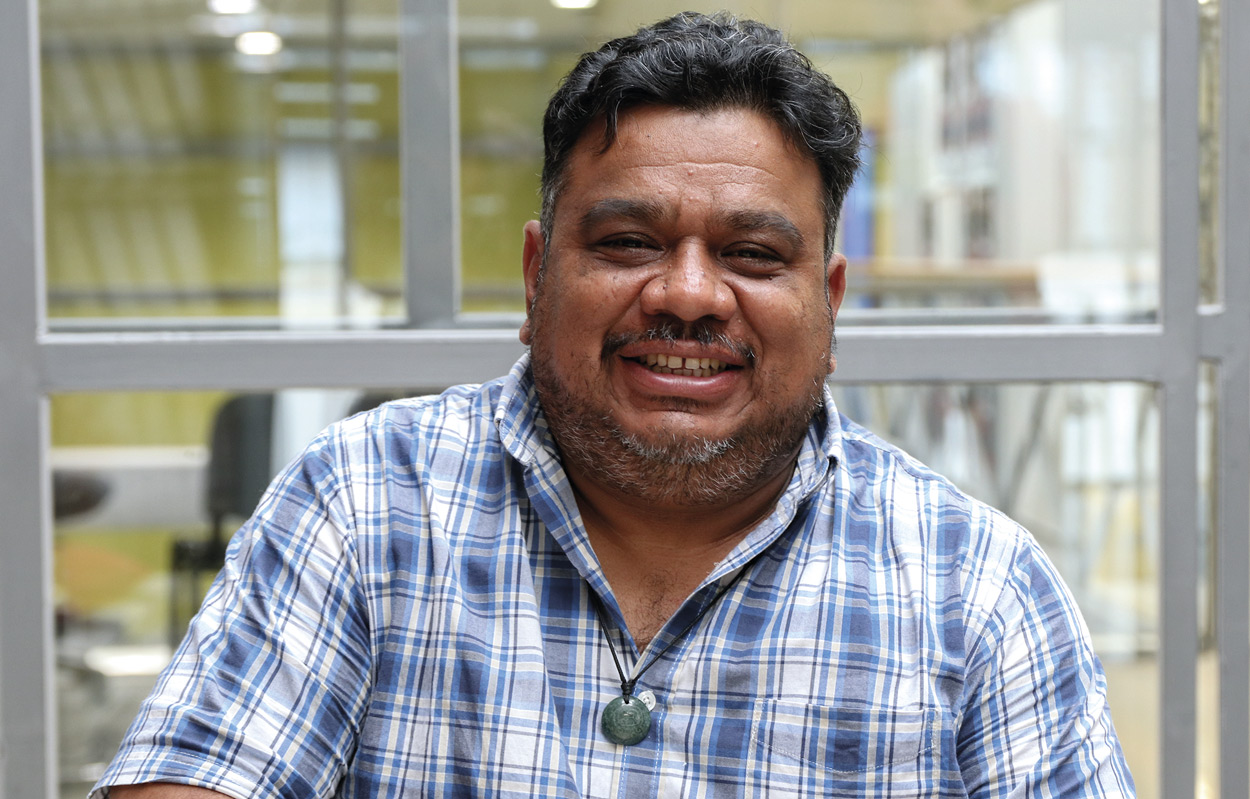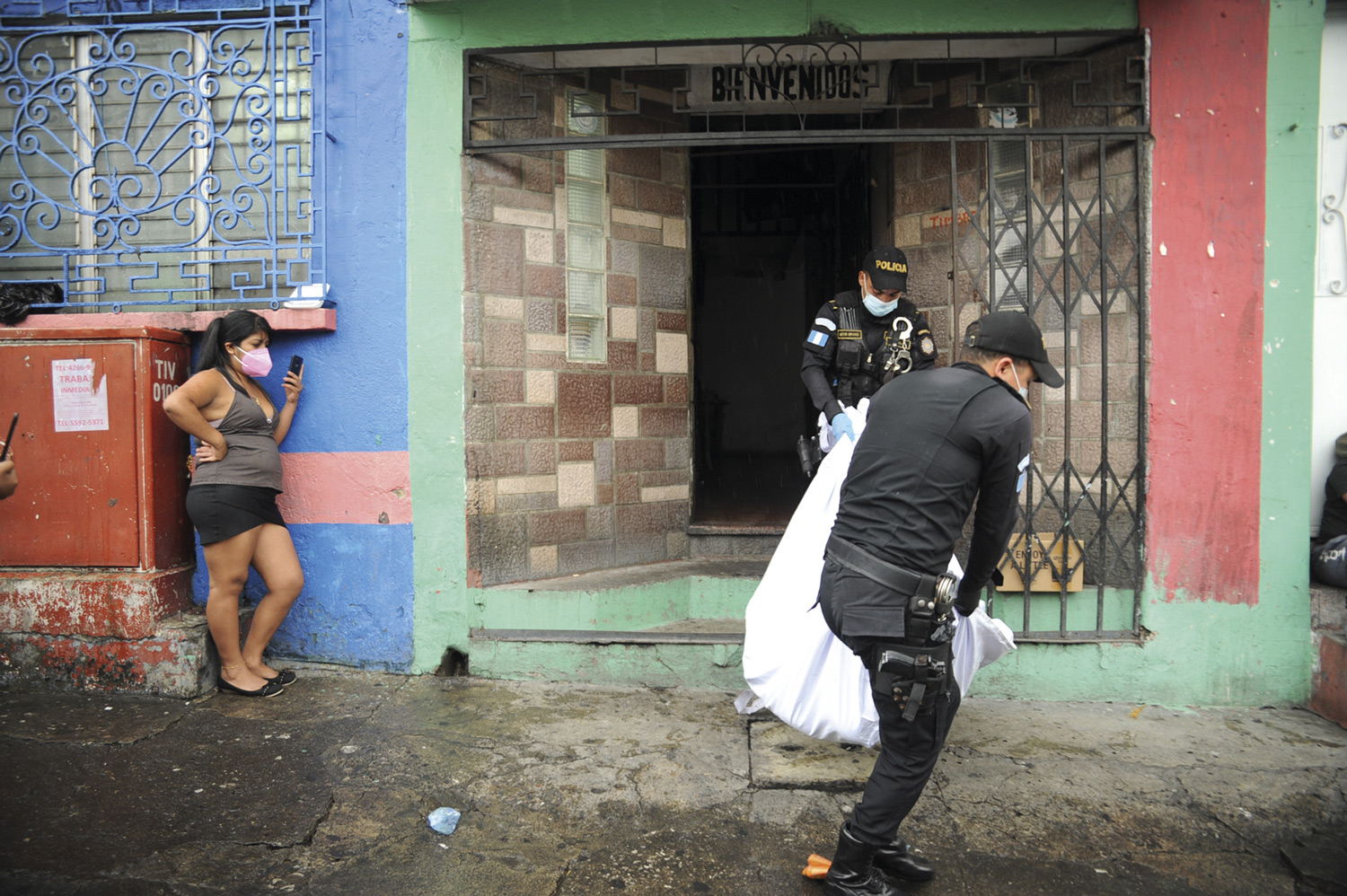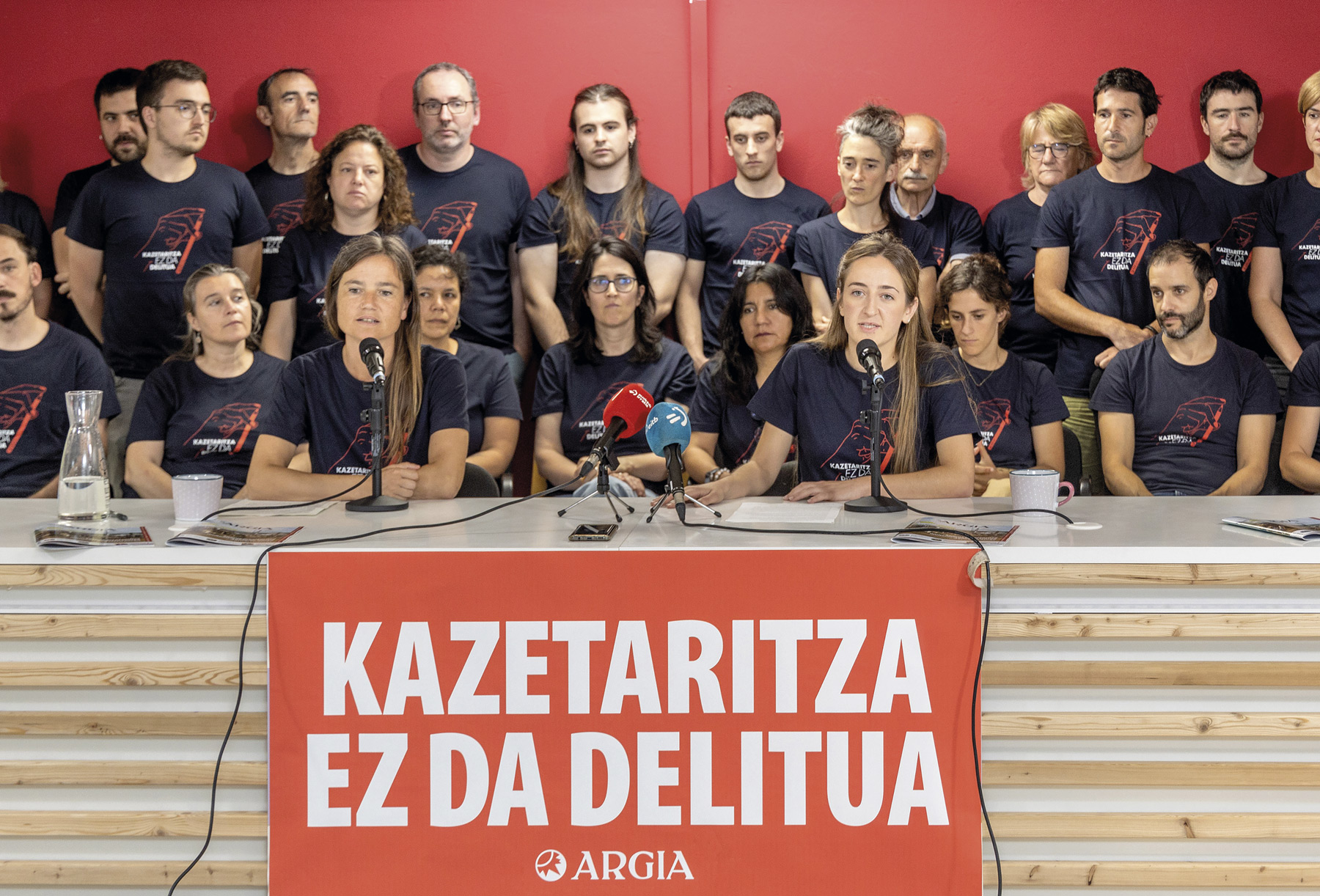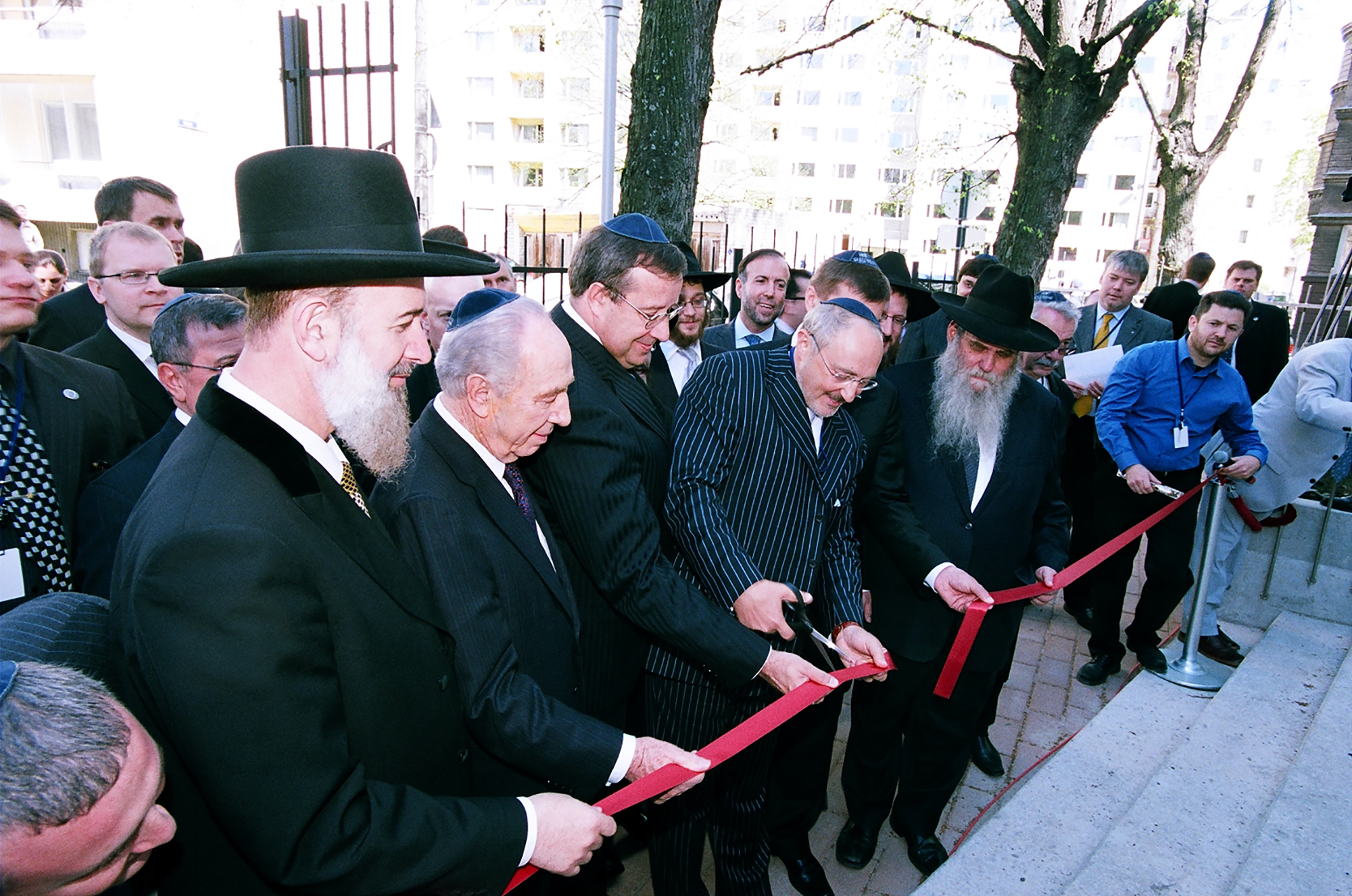"In the people of Maia there is a lot of wisdom, it is essential to recover it and make it a reality"
- The Utz K’aslemal is an important concept for the people of Maia: “to live in fullness” could be a translation of it. Milvian Aspuac, weaver and boss speaks of this worldview. In October he was in the Basque Country and told us about the path that the women of his community have taken and the current situation in Guatemala.

Milvian Aspuac (Santiago Sacatepéquez, Guatemala 1982)
She belongs to the National Movement of Weavers Women and is director of the Association of Women for the Development of Sacatepéquez. The rights of indigenous women and youth work by offering training and counselling processes related to the wisdom of the Mayan people.
Maia is from Kaqchikel and claiming that identity has been very important to ti.El the people of Maia have suffered a long persecution; the State of
Guatemala has applied decrees prohibiting our identity, our clothing, our languages, in the logic of assimilation. For them, development means: “As long as you are like us you will be developed.” It has therefore been a complex process, and it has been very important for indigenous women to recognise that we have been protagonists in maintaining our clothing and our languages. Our mothers and grandmothers have played a very important role and their recognition has been fundamental to gradually find the roots of our thinking and to be able to take account of our political horizon without giving up what we are. From there, we have developed various processes, based on historical memory, to transform our thinking, to reinforce our identity as a Mayan people, and to understand ourselves in the logic of a broader epoch and in the logic of a more cyclical time.
You are the director of AFEDES. In this association you meet the Mayan women of Sacatepéquez to promote development. What path have you taken? The partnership was legalized in
1994 and a number of efforts were made in 2000 to develop economic activities. Throughout our lives, we've heard that we have to grow economically to get ahead. They tell you that earning money is what you need, they tell you that that's the solution to the problems, and we started organizing the spin, but at the same time we started talking about us, about the Mayan women, something we hadn't done until then. Thus, we identify many problems, especially that of women, who live very sad, who suffer a lot of violence. The mind needs serenity and we don't get it. And then we start to understand that we are people and that we have to have rights just because we're alive and we have to be OK. The situation we were experiencing and the economic projects we were promoting did not agree with that.
On the other hand, in Guatemala, in 2004, a banking policy was established for the communities. Banks had money from the people of the city, but not from the countryside. We already had our community banks, with savings and credits. So the banks started doing the same thing, offering a lot of credit to women. And there were high debt ratios. In our case, we managed a portfolio of loans with women, but we realized that their lives didn't really change. It was profitable for the organization because we got interests and they became projects for women, but we didn't want to develop projects for women or get income for the association at the expense of the bad experience of the partners.
"When we arrived at human beings in our reflection and asked what happens if there are no human beings, we realized that nothing happens. It would only recover what was destroyed."
For example, the
expected economic growth did not occur, and projects that were growing economically also failed. I remember that some women had very profitable chicken farms and we were helping them with this project. Then, when the chicken companies in Guatemala realized that these initiatives were growing, they began to market products very similar to our partners, with a price below 25 cents of the cost of production. Consequently, the small initiatives failed. It wasn't about women in communities getting up late or not working, or not having administrative, financial and methodological capacity, but eating if it didn't suit big business. Large fish eat smaller fish. So we understood the rationale of capitalism. We didn't read any theory, it crossed us all.
.jpg)
Then you started a process of political reflection.
Yes, we've been reflecting for two years. We stopped many projects and wondered: “What is the most important thing to live? Are we happy with what we are doing?” And we define that the biggest crisis in the world is the crisis of existence. Life is in danger. And if life is in danger, then the important thing is life. From there we put life in the center. Then we started thinking about what we need for life. If you take our air off for five minutes, what happens? We all died. Do they also take water from us? Same, 80 percent of us are water. By pulling it out, we started to weave a network, a network of life where we put the sun and the night, and there we understood the principle of duality and complementarity. Maya is a principle of the conception of the world that feminism has often questioned. But we are not talking about women and men, we are talking about life. We can live no more than the day, we would die and we could live no more than with the night.
In this network of life, what role would human beings have?
When we came to human beings in our reflection and asked what happens if there are no human beings, we realized that nothing happens. It would only recover what was destroyed. Therefore, this reflection has served us to take away the anthropocentric vision, in which we stand above life and nature. It helped us relocate: we're not the most important thing. If we have the ability to think and reason, it's not a privilege, it's a responsibility. We have more responsibility in the care of the network of life; the animals, the trees, all of them care in some way, fulfill their responsibility in the care of the network of life, but the human being does not.
"We have to do what we have at our fingertips, because self-determination is carried out in this way, through capabilities; it is the ability to develop your own path rather than live under the dominion of others."
In this sense, you have also worked on the recovery of the knowledge of your ancestors.
And one of the things that we've found is that we want to start from our lives, taking into account the information that's in our languages and the way that we see our environment. We don't talk about natural resources: if you talk like that, you see nature as a good. We ask ourselves: What is our approach to everything that exists? We've realized that we see the environment as a family, and that's a totally different view. We believe that there is great wisdom in the people of Maia, and that it is essential to recover and define that wisdom on the basis of the reality in which we live and the conditions in which we find ourselves. There's not much to invent, but there's a lot to recover, to revalue, and also to make reality in our daily lives. And that means accepting the privileges that we have and acknowledging that we have to feel uncomfortable. But most people don't want that obstacle, because if they have privileges, they don't want to leave them. Moving or staying depends on the will of the people. Now we're working on all of this in the training processes because we believe that we can't change our actions if we don't transform our thinking. On the other hand, the analysis is important, but we cannot stay fixed on it, as it leads to paralysis. We have to walk the step-by-step path in order to build the dream that we remember.
On the way to build that dream, you define three types of autonomy for women: physical, economic and political.
We, within the framework of our identity as an indigenous people, know that the right of self-determination of peoples is one of the most important rights. But in order to do so, the subjects who are part of that people also have to be equal in terms of rights. To the extent that there is inequality, we are not going to exercise the right of self-determination, right? As an affirmative action, we work with women, who are the most disadvantaged, because we live under patriarchy, insofar as we live under racist violence and capitalism. With regard to the right to self-determination, the ultimate goal of our process is to contribute to the autonomy of women. In the case of physical autonomy, this also implies a transformation of thought: to be aware of ourselves and of the importance of our own existence, to be able to make our own decisions and not to allow others to decide for us. We must decolonize thought and denature violence.
And in economic terms? We have income-earning projects
with the sale of fabrics and other items. On the other hand, in our communities we still produce food fortunately, and that is part of our food sovereignty. We cannot say that employment is the key to women’s economic autonomy. Because how many job opportunities are there? Do we meet all the requirements for employment? Some women in our community don't know how to write or read, and they're monolingual, they don't know Castilian. There are therefore no opportunities for everyone in employment. We have to do what we have at our fingertips, because self-determination is carried out in this way, through capabilities; it is the ability to develop your own path rather than live under someone else's dominion. In this framework we see the economic autonomy of women. We have to recover productive capacities and, very importantly, drive self-consumption.
.jpg)
I should like to ask you about the political situation in Guatemala. In last year’s elections, the left Seed party imposed itself on its opponent Bernardo Arévalo in the presidential elections. I am a member of the Council of Indigenous Authorities of
Santiago Sacatepéquez, we are articulated with other indigenous authorities and last year we made a 106 day uprising after the elections: it was very important to be on the street for the president to take office properly. At first we thought we would stay for two or three days, and at the end it was 103 days. After the election, the Seed party won: the traditional political class didn't expect it, I guess many people didn't expect it, including the Seed parties. But it happened, and the elites wanted to tear it down, not with weapons, but with laws and legal resources.
After taking office, how do you see the situation?This
is a window open to the general public. We are sick, corruption and impunity have been evident, and we now hope that the Government will implement changes. At the same time, we know that internal struggle is very difficult; they are not allowed to rule. And many people find it hard to understand that there are three powers in the state and that, even if you're the new president, not everything is suddenly going to be transformed. In other words, neither with the change of president nor with the change of president will we have more objective judges right away, because justice is another power. I believe that the indigenous authorities and part of the social movement are aware that we must support this government and be on different fronts: departmental governments, system of development councils, where the organised civil population can participate in its sectors. We have to fill these spaces in order to be able to make strength.
"It was very important to be on the street for the president of the Generalitat to take office as he should. At first we thought we would stay for two or three days, and at the end it was 103 days."
In the new government, a colleague of the women weavers movement, Angelina Aspuac, has been appointed governor of the department of Sacatepéquez.
We put it for the position; before I was coordinator of the National Movement of Weavers. Today we support him: we do not know about the public administration and we do not know what we can collaborate on, but at least to exchange ideas or to make a catharsis, we are there. That protection is important because entrepreneurs have their own interests, organized crime is also there, drug trafficking. That is the reality and there are tensions. If you're alone, it's easier for them to throw it away; if you have community support, not so much. Therefore, in our own department we are in a situation of correlation of forces, and in other areas we want to do the same.
For example, we have recently been analysing the nomination and election of the new judges of the High Court of Justice, because the current judges have already had two periods, which is unconstitutional. The courts have lost objectivity and also the application of law and justice. So it is very important for us to recover the court: we want dignified courts. These days we are choosing the Court of Appeal and we will see if the courts are cured. The indigenous authorities and the weavers movement are trying to observe this and be present in the process.
Do you mean something else?
What I mean is that indigenous women are aware and know what we want. We don't need people to question us or reject us, we need people to have more empathy and understand that we have our own processes. We invite people to talk to us about what we do. We can get together in a lot of things, and for us it's very important that we want to live in freedom, being who we are. Being different doesn't mean that we don't value, we are like any human being. It is important that we can bring together looks and efforts, because we live on an agonizing planet, and we all share this planet. You need to feel uncomfortable and move around to start making changes.
A Western multinational exploits the natural wealth of a territory considered “third world” on a massive scale. Money for the company, pollution for residents and various problems. How many times have we heard this story? On this occasion, however, 65 journalists and... [+]
Martxoaren 8an legearen alde bozkatu zuten, baina presio sozialaren ondorioz martxoaren 15ean artxibatzea erabaki dute. Abortatzeagatik kartzela zigorrak handitu eta eskoletan sexu-aniztasuna irakastea debekatu nahi zuten.







